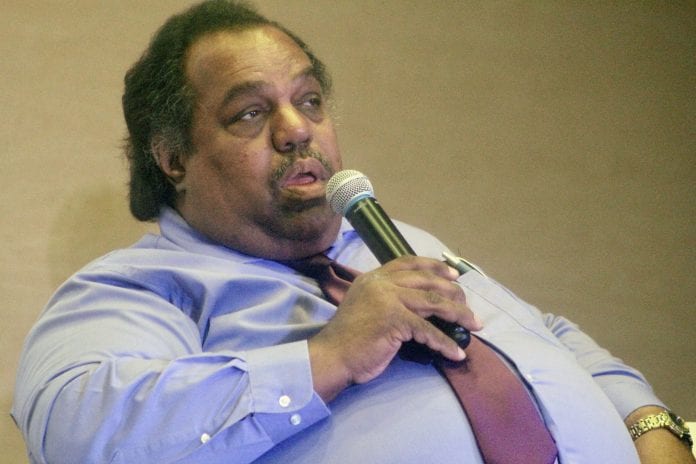by Harlan McCarthy —
Race relations is such a hot-button issue that few accept the challenge to tackle it, with some ignoring the topic altogether. Fortunately, Daryl Davis chose not to ignore America’s sordid history with race relations and instead tackled the subject head-on with a documentary.
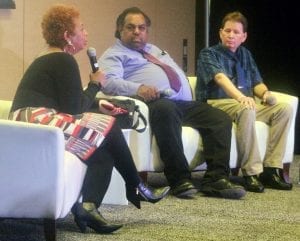
The actor, author and musician was in Memphis recently to accept an award from the Memphis Friendship Foundation for his work in race relations and to participate in a panel and documentary screening at the National Civil Rights Museum (NCRM). The panel included former Klansman Scott Shepherd and NCRM Chief Marketing and External Affairs Officer Faith Morris as moderator.
Davis notes that he has befriended more than 20 members of the Ku Klux Klan and has helped reform over dozens of KKK members. Upon their supposed “reforming,” they gave Davis their garments, which he keeps for an eventual “Museum of the Klan.”
His techniques of infiltration differed from the cult biographical hero Ron Stallworth in “BlacKkKlansman” but received the same results. Those results led him to create the documentary “Accidental Courtesy: Daryl Davis, Race & America,” which was screened before the panel discussion.
Davis compared his work to a specific branch of police force trying to collectively solve a hostage situation. Citing a scene in the film where he and members of the Baltimore chapter of Black Lives Matter have an altercation, Davis said, “They’re into the systemic racism. I am more into the individuals, but we all have to work together. We all have a role to play. You do what you do best, I do what I do best.”
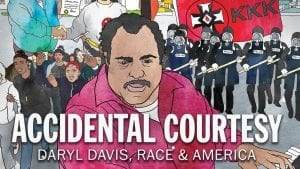 In the film, Davis discussed his upbringing, which included spending time abroad. At age 10, he moved to a suburb of Boston where he was one of two black kids in his school. He said his first signs of racism were in the Boy Scouts.
In the film, Davis discussed his upbringing, which included spending time abroad. At age 10, he moved to a suburb of Boston where he was one of two black kids in his school. He said his first signs of racism were in the Boy Scouts.
During a Cub Scout march, he was chosen by his troop to carry the American flag. Suddenly people in the crowd started to hurl bottles, cans and rocks, and he thought to himself, “These people must not like the scouts.” In time, he realized that he was the only kid being targeted. The den staff was dismayed but shielded him from the situation physically and verbally.
Upon returning home, his parents explained to him what happened and the origins of racism in America. It also left him feeling as if his mom and dad had been lying to him before and “my mom and dad never lied to me.” His scouting experiences led him to ponder the diversity he encountered in school and why people were judged based on hue.
Davis did not allow the scouting incident to define him. He graduated from Howard University with a bachelor’s degree in jazz music. As a music journeyman, he played with Muddy Waters, Chuck Berry and many other music pioneers. Davis called Berry his “Bossman” and credited the rock ‘n’ roll pioneer. “Elvis, The Beatles, the Rolling Stones, Led Zeppelin, Van Halen, Elton John, anybody who plays rock music — all their DNA goes back to Chuck Berry and Little Richard.”
His passion for music is what sparked his reforming of KKK members. Performing at a country western gig, Davis caught the attention of a patron. The patron and Davis debated about Jerry Lee Lewis, a personal friend of Davis’. Continuing the debate, the patron revealed he was a member of the KKK. Davis recounted the scenario in his documentary and his book “Klan-destine Relationships: A Black Man’s Odyssey in the Ku Klux Klan.”
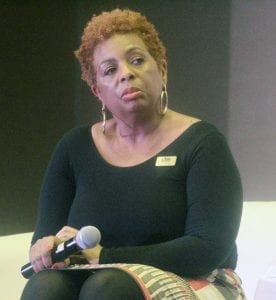
During the panel discussion, NCRM’s Morris mentioned that former KKK member Shepherd’s need for acceptance led him to the KKK, which Shepherd acknowledged as true because of his upbringing.
“My dad was a very violent alcoholic. A lot of the things I witnessed as a young child instilled PTSD (post-traumatic stress disorder). I was looking for a place to fit in. I was looking for a home, a family, I found it right in my backyard (Indianola, Miss.) with the Klan.”
While this year’s Oscar contender “BlacKkKlansman” and Davis’ “Accidental Courtesy: Daryl Davis, Race & America,” do a decent job of showing the inner workings of this hate group, it is obvious that more work needs to be done to actually tackle improving race relations in the U.S.
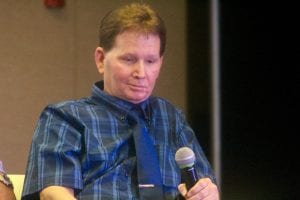
According the Southern Poverty Law Center, there is a 30 percent increase in hate groups the past four years in the U.S. In its “The Year in Hate and Extremism” report, the SPLC found a 7 percent increase and a total of 1,020 hate groups in 2018 alone.
(Daryl Davis’ book and film can be purchased on Amazon. The panel discussion will be the focus of May 12 episode of “Where Do We Go From Here?” at 5 p.m. on TSDRadio on WLOK (1340 AM, 105 FM).)


